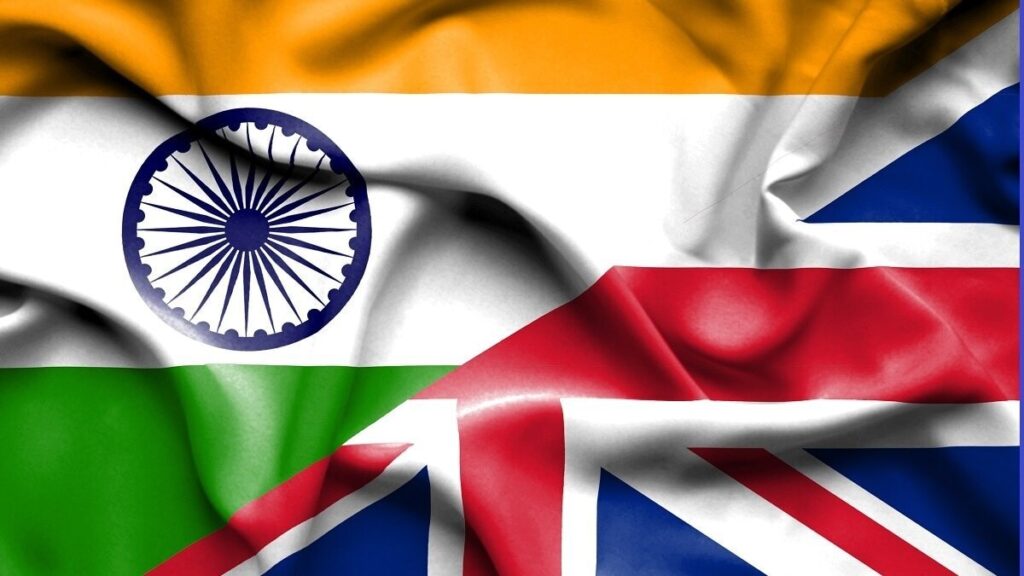Prime Minister Narendra Modi on Tuesday announced the successful conclusion of the Free Trade Agreement (FTA) and Double Contribution Convention with the United Kingdom (UK). This agreement, which comes after three years of negotiations, is expected to boost bilateral trade by an estimated 25.5 billion pounds by 2040. The deal focuses on enhancing market access and reducing trade restrictions.
As part of the agreement, tariffs on items like whisky, advanced manufacturing parts, and various food products will be reduced. Quotas will also be established for automobile imports on both sides. These measures are aimed at fostering stronger ties between the two countries, streamlining trade regulations, and promoting economic cooperation.
The inclusion of a social security pact, a priority for India, is intended to safeguard the interests of skilled professionals working across borders. These agreements mark a significant step towards strengthening economic relations and promoting mutual benefits for both India and the UK.
Union Minister for Commerce and Industry Piyush Goyal said: “This agreement sets a new benchmark for equitable and ambitious trade between two large economies. It will benefit Indian farmers, fishermen, workers, MSMEs, startups and innovators. It brings us closer to our goal of becoming a global economic powerhouse. This FTA is not only about goods and services, but also about people, possibilities and prosperity. It protects our core interests while opening doors to India’s greater participation in global value chains.”
Top Highlights
Zero Duty for Indian Exports: Around 99% of Indian exports will benefit from zero tariffs, boosting sectors like textiles, marine products, leather, footwear, toys, gems & jewellery, engineering goods, and more.
Three-Year Social Security Exemption: Indian employees temporarily working in the UK and their employers will be exempt from social security contributions for three years under the Double Contribution Convention, enhancing India’s global service competitiveness.
Major Gains in Services Trade: India secures ambitious market access in IT/ITeS, financial, professional, educational, and business services, along with commitments in digitally delivered services.
Mobility Boost for Professionals: Eased mobility for contractual service suppliers, business visitors, intra-corporate transferees, investors, and independent professionals such as yoga instructors and chefs, including right-to-work for dependents.
Labour-Intensive Sectors to Benefit: Key export sectors—especially labour-intensive and MSME-driven—are expected to gain a major edge in the UK market, improving employment and export competitiveness.
Strong Regulatory Cooperation: Commitments on non-tariff barrier reduction, good regulatory practices, and transparency to support smoother trade and India’s ease of doing business goals.
Strategic Alignment with Viksit Bharat 2047: The deal complements India’s long-term vision of becoming a global economic powerhouse, aligning with its roadmap for inclusive, sustainable growth.
Projected Trade Surge: With current bilateral trade at around USD 60 billion, the FTA aims to double this by 2030, deepening investment and innovation ties.
Comprehensive and Modern Structure: Described as India’s most comprehensive trade deal yet, the FTA sets a “gold standard” for future global engagements and promotes fair, ambitious, and future-ready trade.
Commerce Secretary Sunil Barthwal emphasised that this FTA is a game changer and will set India further on the path of rapid economic growth and benefit India’s global integration. This is the most comprehensive free trade deal ever entered into by India and will be the gold standard for our future engagements.
Discussions regarding a free trade agreement between India and Britain began in January 2022, amidst a backdrop of political instability in the UK with four changes in prime ministers over the past three years.
Despite the challenges posed by these transitions, 14 rounds of negotiations have occurred between the two countries for the FTA. The bilateral trade between India and the UK saw an increase from $20.36 billion in FY23 to $21.34 billion in FY24. Both nations are aiming to double their bilateral goods trade over the next decade, aspiring to reach $40 billion from the current $20 billion.
However, a bilateral investment treaty (BIT) between the two countries is still awaiting approval, as both parties have encountered challenges in resolving differences related to the investment agreement, particularly regarding dispute resolution mechanisms.
Source:https://www.businesstoday.in/latest/economy/story/99-indian-exports-to-benefit-to-boost-in-trade-in-it-services-top-highlights-of-india-uk-fta-474946-2025-05-06?utm_source=rssfeed

